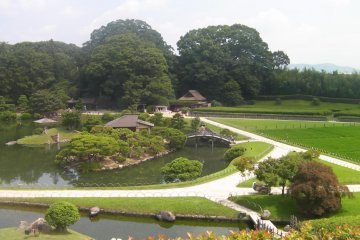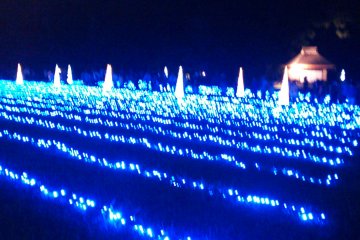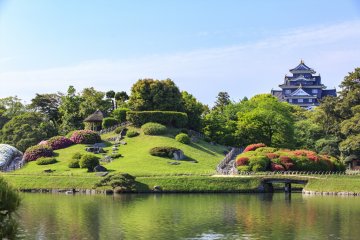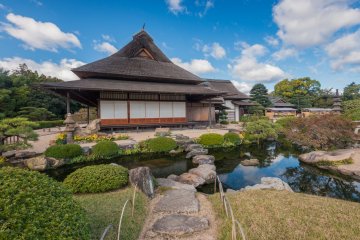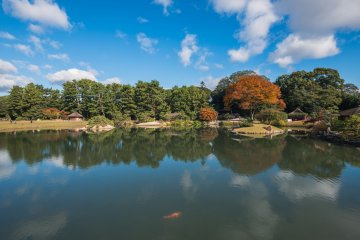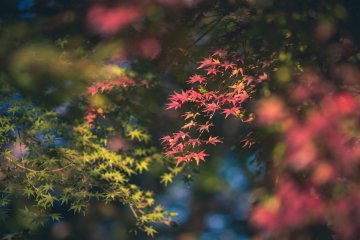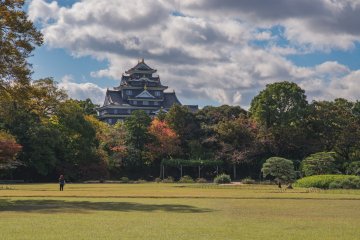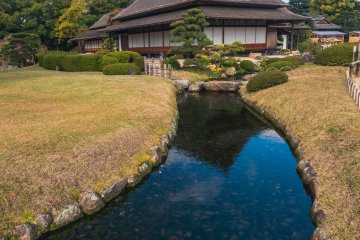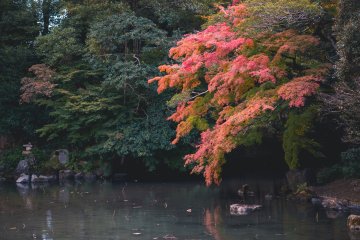As an island nation, Japan is a country with limited land and natural resources. On one hand, this has caused difficulties for the country. On the other hand, it has forced the Japanese to use their creativity and ingenuity to make the most of their land. This is most prominent in the beautiful gardens of Japan, which are best embodied by Korakuen Garden, named one of Japan's top three gardens, in Okayama City.
Beauty and detail-oriented are the core elements of Japanese gardens; historical and cultural significance adds to the experience. Korakuen incorporates an abundance of traditional Japanese elements. Feudal lord Ikeda Tsunamasa ordered for the construction of garden in late 1600s and it was completed in 1700. It was built as a place to entertain important guests and as a retreat for the feudal lords. Even today, the purpose of the garden is evident. Although wars and disasters have caused damage at various times, detailed plans have allowed the garden to be continuously restored to its original layout.
Korakuen allow guests to experience traditional Japan. The beauty of nearby Okayama Castle can be seen from many parts of the garden. Within the garden, there are numerous spots which evoke the ambiance of old Japan. Buildings like the Renchi-ken teahouse (said to be a favorite of Ikeda himself) still stand today, painting a vivid image of what life was like during the feudal era.
The garden’s natural beauty is accompanied by man-made structures which can be seen on the ground. The Ryuten Pavilion, which is located in the central of the garden, offers spectacular views which are unique with a small rocky stream running directly through the center of it. During spring, this fine wooden pavilion is the perfect place to relax and enjoy views of the nearby cherry blossom grove. During autumn, momiji (Japanese maples) take the stage with vibrant autumn hues. Right behind the pavilion is Yuishinzan Hill, which offers spectacular panoramic views. Visitors could easily relish in the Ryuten Pavilion for hours.
Incidentally, some of the views from the pavilion are major attractions within the garden. When the cherry blossom trees bloom in Spring, hundreds of visitors come and enjoy hanami (flower viewing picnics) beneath the trees. Although the garden can get crowded during this season, it is still a great time to visit Korakuen. The beauty of the cherry blossoms is like no other, and enjoying it within one of Japan’s best gardens is an unforgettable memory.
Although man-made structures and plants are a big part of Korakuen’s appeal, there is also animal life that is not to be missed. Like many Japanese gardens, Korakuen’s ponds are filled with colorful carp and ducks which can be fed at certain spots along the banks. Unique to the garden however is the crane aviary. Although cranes have a long history in the garden, they died out after World War II. Thanks to the generous efforts of several concerned parties, their beauty once again graces the grounds of Korakuen today.
Fitting the best elements of Japan into one place is tough, however they have successfully done that at Korakuen. History and culture, beauty and tranquility – they are all present here. That is precisely the reason why Korakuen is considered one of the top three gardens in the country and should be added to your travel agenda in Japan.



